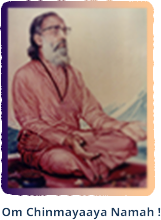Chinmaya Mission milwaukee
X

Welcome

Let the mission members clear their hearts of all sense of differences &
destructions created in society by caste & creed, by wealth & power by custom & tradition.
-Swami Chinmayananda
Encountered this error fetching global page:The requested URL returned error: 403 Forbidden